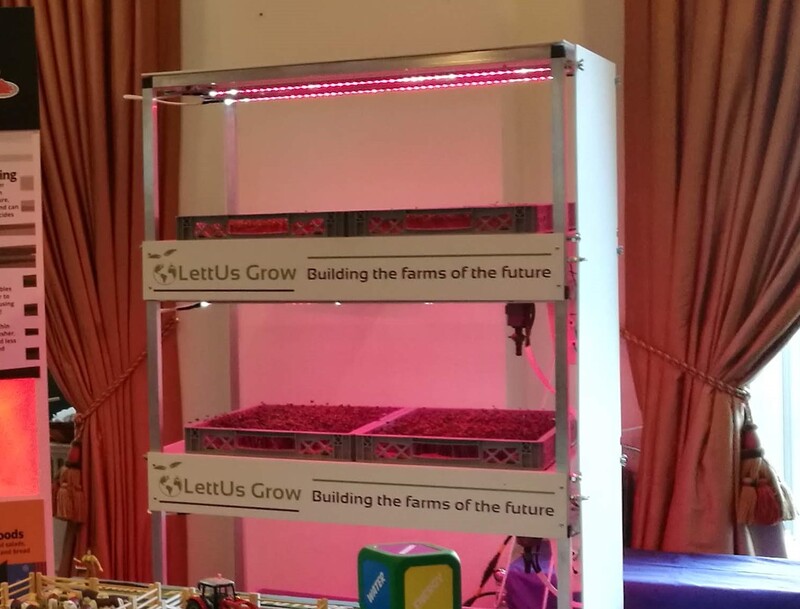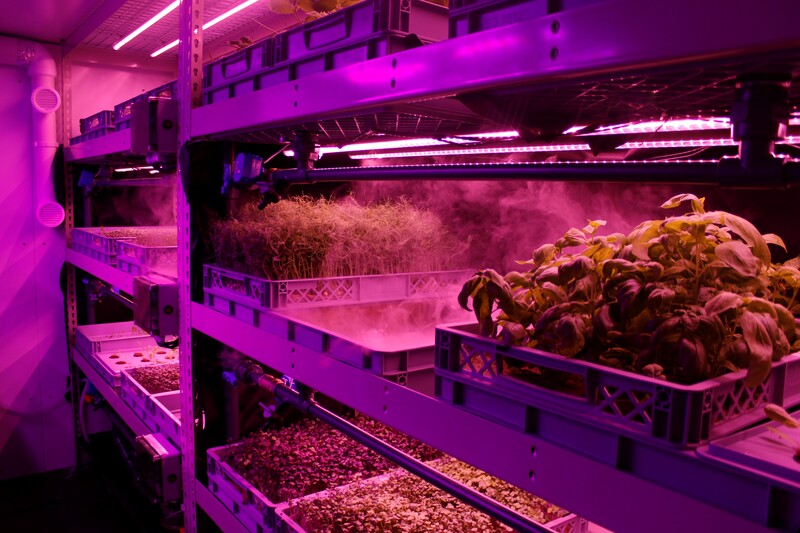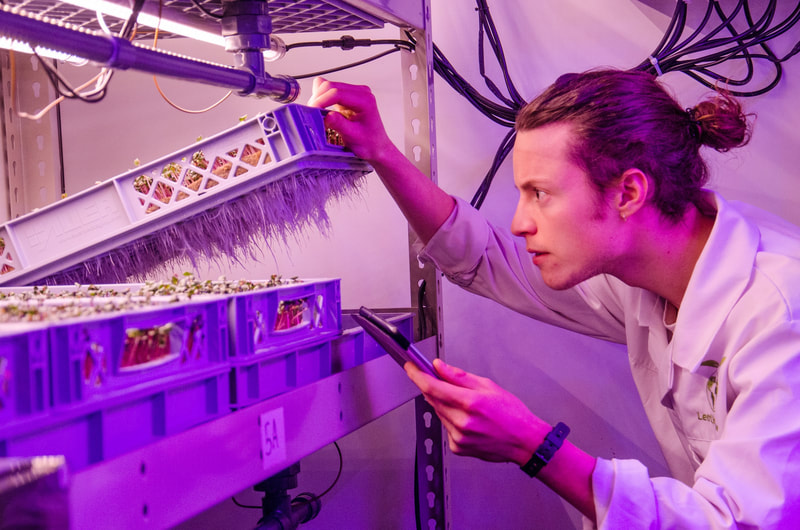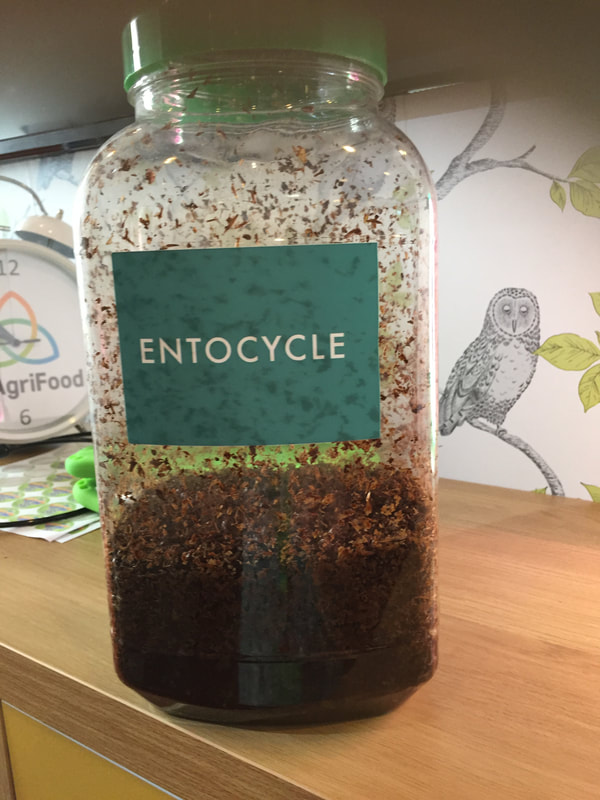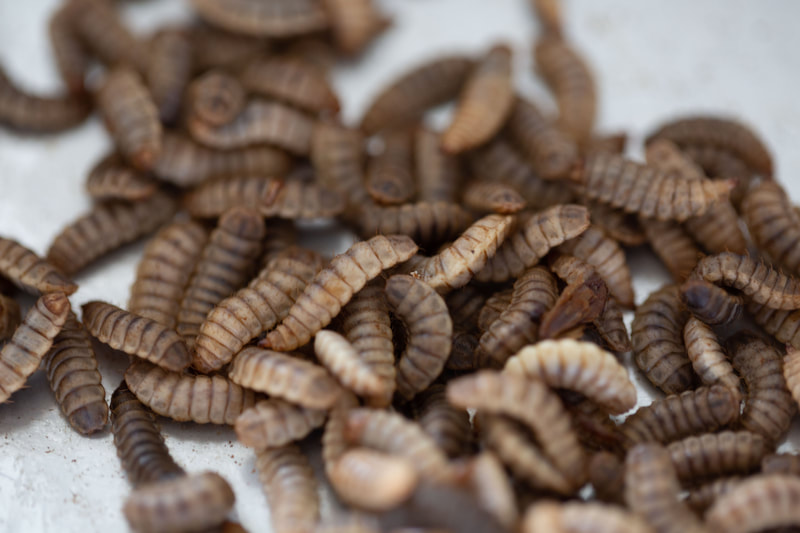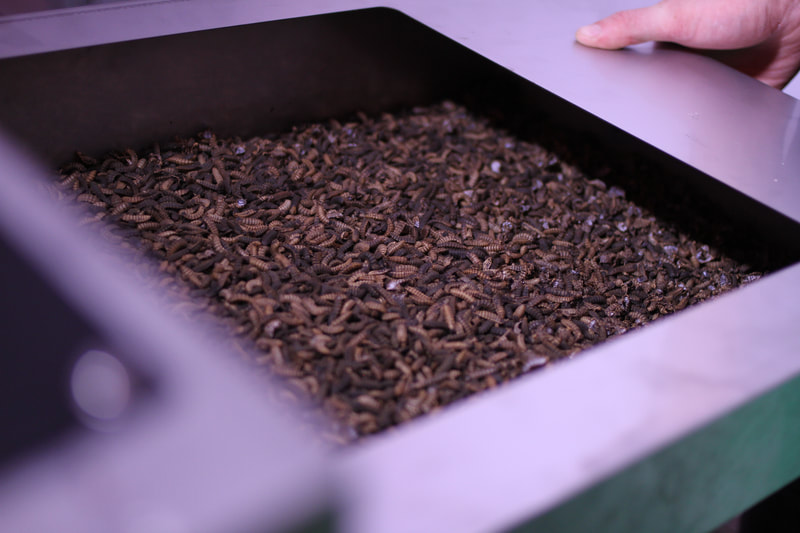|
Professor Brian Cox joins members of the research team from Take a Bite Out of Climate Change, to discuss what you can do to cut the carbon emissions from your food. Produced by the Royal Society.
|
|
Much of the research and activities showcased on this website were undertaken and developed for the Take a Bite Out of Climate Change Exhibition that was first shown at the Royal Society Summer Science Exhibition in 2019
The STFC Food Network+, N8 Agrifood and the University of Manchester came together with colleagues from across the country to put together this exhibit. We focussed on how primary food production, food processing and consumer food choices contribute to greenhouse gas (GG) emissions. We showcased examples of innovations to improve sustainability in these areas:
|
With thanks to Laura Knowlson (N8 AgriFood) for sharing this video with us
|
- Our 'Climate Food Challenge' online game, 'Farming for the Future' board game and our Climate Food Flashcards - You can find out about all three of these on our homepage.
- The 'Finishing Your Plates' demonstration which showed how food manufacturers are making sure sustainable product development results in reducing our food waste. We discussed the importance of not wasting food and how using new technologies to preserve and package foods provides the option to store and portion them so that zero food waste becomes possible. 'Finishing Your Plates' showed how this could be achieved with some of our favourite fruits and vegetables by demonstrating the processes behind the food label that can help us to deliver sustainable meals. This activity was lead by Wayne Martindale and colleagues at the National Centre for Food Manufacturing at the University of Lincoln.
- Aeroponic Vertical Farming by LettUsGrow - By 2050 we’ll have 2 billion more mouths to feed. This will need to be done with less farmland, degraded soil and in an unstable climate. Indoor farming offers a climate-resilient solution to grow fresh produce consistently and sustainably. LettUs Grow’s patent-pending technology represents a step-change in efficiency for the indoor farming sector. It can grow fresh produce without soil, all-year-round and in any environment - from cities to deserts - with minimal impact on the planet. The technology has shown growth rate increases of 70% over hydroponics and uses up to 95% less water than traditional agriculture. An easy-to-use software platform, Ostara®, provides data automation, optimisation and business planning tools to farmers, helping to maximise yields and minimise labour and resource use. There are many applications for the technology including urban and traditional farms, food corporations and research centres. For example, farms could be located in food distribution centres to minimise food miles, keep food fresher for longer and reduce protective packaging. This would reduce the carbon footprint of fresh produce while simultaneously slashing both food and packaging waste.
- Insect proteins from Entocycle - Did you know that an area of forest the size of a football pitch is destroyed every second? Did you know that most of this land is then used to grow crops to feed animals? In fact, an area almost three times the size of Germany is dedicated to soy production, with 80% of the soy produced used to feed cattle, pigs, chickens and even (farmed) fish. This isn't a problem confined to the rainforests of South America - this is a threat to all life on earth. The world's forests absorb up to 40% of global carbon dioxide emissions - and without the oxygen that trees release, life would struggle to exist. So Entocycle are making protein sustainable — by using insects to feed animals instead. They turn local food waste into protein-rich insects to feed animals. Using protein from insects is a sustainable alternative to the significantly more land and resource intensive soy or fishmeal. This is not a ‘new’ idea. Insects are a natural part of the diet of many animals including fish, chickens and pigs. But Entocycle are using technology that combines automation, artificial intelligence and machine learning, to bring world-leading efficiencies to insect rearing and insect protein production. they aim to help bring an end to the mindless destruction of the natural world, and they hope to one day see much of the land currently dedicated to soy production, returned to the wild.
We'd like to acknowledge here the key people that worked with us on this activity:
Our Organisers & Expert Communicators:
Our Advisory Board:
Evaluation:
You can find out more about the results of the research we undertook at the RSSSE and at BlueDot Festival 2019 through the following evaluation reports:
Some interesting statistics/comments:
You can find out more about the results of the research we undertook at the RSSSE and at BlueDot Festival 2019 through the following evaluation reports:
- With thanks to everyone who filled out our survey about dietary choices - you can see a statistical analysis here. This report was written by undergraduate student Joanne Cook, thanks to funding from a University of Manchester Wellcome Institutional Strategic Support Fund award [204796/Z/16/Z].
- Alana Kluczkovski led the writing and coordination of an evaluation paper which been accepted into the special "Healthy Sustainable Diets" issue of the Journal 'Sustainability' You can access this through their website.
Some interesting statistics/comments:
|
Visitors to Exhibition:
• Around 1,700 school groups, including students and teachers • Over 9,750 public visitors • Through visitor counting at specific times, In total, we estimate that there were 4033 adults, 1107 teenagers and 1147 children who engaged with our exhibit |
Press:
• 3 interviews (ITN, BBC Radio Lancashire, BBC Radio Wales) • 25 articles written as a result of the BBQ press release (including the Sun, Daily Telegraph, Daily Mail, ITV online) Video published on Royal Society YouTube site – 44,863 views as of September 2019 |
Comments from RS mystery shoppers:
• ‘...their exhibit was very interactive and the vertical farming is great to see in person’ • ‘Seeing how veg can be grown without soil and inside was illuminating’ • They had a dice game to explore how various changes on a farm setting can have big impacts on the environment. Was very interesting’ • ‘...the ‘top trumps’ style cards were cool’ |
Quantifiable engagements during the week:
• 1398 stickers given out
• 1455 seed packets given out
• 448 responses to simple question on consideration of greenhouse gases when choosing food
• 2600 online game plays
• 280 in game surveys completed
• 37 qualitative surveys completed
• 86 tweets from our team giving 159k impressions, 2237 engagements, 221 link clicks and 173 retweets
• 1398 stickers given out
• 1455 seed packets given out
• 448 responses to simple question on consideration of greenhouse gases when choosing food
• 2600 online game plays
• 280 in game surveys completed
• 37 qualitative surveys completed
• 86 tweets from our team giving 159k impressions, 2237 engagements, 221 link clicks and 173 retweets
